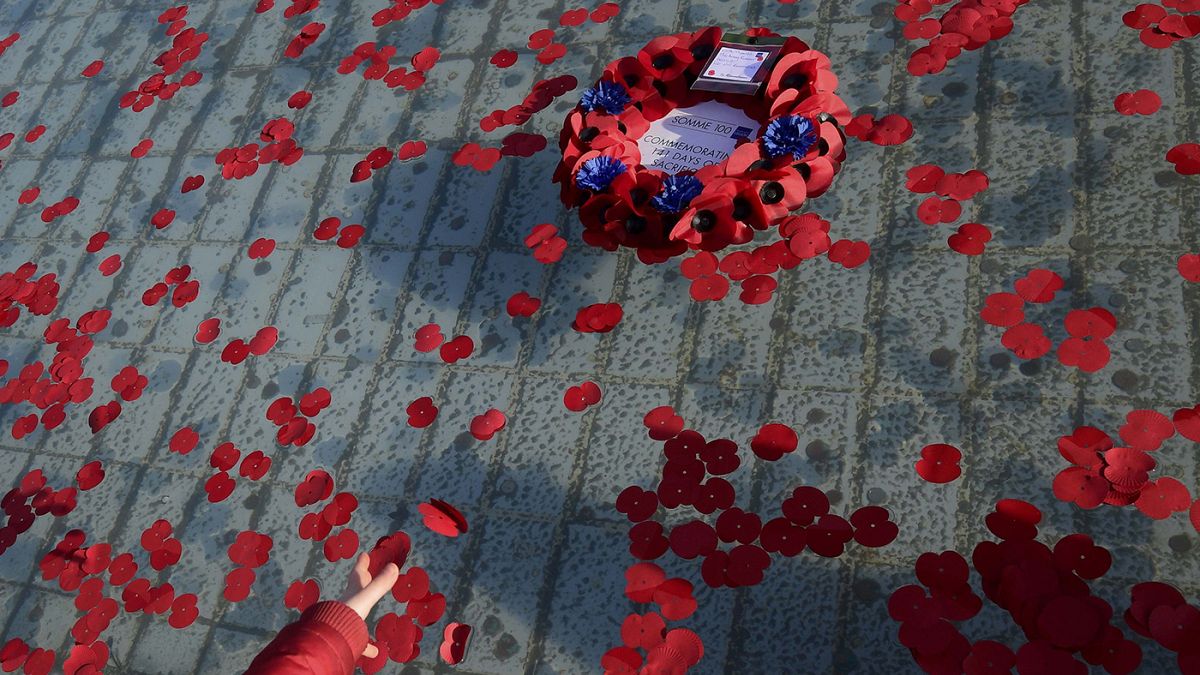On the eleventh hour of the eleventh day of the eleventh month in 1918 the guns fell silent.
On the eleventh hour of the eleventh day of the eleventh month in 1918 the guns fell silent. World War One was over.
It was a day marked at Buckingham Palace in London as Queen Mary appeared on the balcony with thousands in the Mall celebrating.
Armistice Day was born, an event that set the trend across the world for decades to come.
Prince Harry leads the nation in commemorating #ArmisticeDay at the Service of Remembrance
Nat_Mem_Arb</a> <a href="https://twitter.com/hashtag/WeWillRememberThem?src=hash">#WeWillRememberThem</a> <a href="https://t.co/qaCjYVrRpp">pic.twitter.com/qaCjYVrRpp</a></p>— The Royal Family (RoyalFamily) November 11, 2016
Two years ago the Duke and Duchess of Cambridge marked the centenary of the start of World War One by planting ceramic poppies at the Tower of London in memory of almost one million British and Empire soldiers who died in the trenches.
The red flower has become a potent symbol of the blood which was spilled and the sacrifice of those who lost their lives in the conflict.
The poppy flourished in the fields of Flanders in Belgium which was engaged in the war from its start to end. It is here that thousands of soldiers of many nationalities rest.
On the walls of the Menin Gate in Ypres – a sector where five battles took place during the four year conflict – visitors can see the names of their ancestors who perished. More than 54,000 British and Commonwealth soldiers whose bodies have no known grave are included in the list. Australian Stephen Vassee placed a poppy beside one name.
“It’s my wife’s great-uncle. He was killed at Polygon Wood on October 7, 1917,” he explained.
The memories of those who died in what was one of the bloodiest conflicts have been handed down from generation to generation so great was the trauma of the war and the effect it had on families.
But it is not only for those who lost a distant relative. It is also to mark four years which transformed the world in which we live. It changed beyond recognition and set in motion future events.
“It was a hundred years ago, World War One, but it is still shaping the world in which we live. Without that war, we might not have had the disappearance of Austria-Hungary and the Ottoman Empires. I think we most certainly wouldn’t have had the Bolsheviks seizing power in Russia in 1917. And when you think of what flowed from that – it shaped the whole of the 20th century. And the First World War also created the circumstances within the Second World War became possible,” opined Professor Margaret MacMillan, Oxford University historian.
More than thirty nations were involved in what is known as the Great War. There are no survivors.
The poppy was first worn in 1921 and has now become a symbol of those who fell in the World War II and in other conflicts like Afghanistan.
